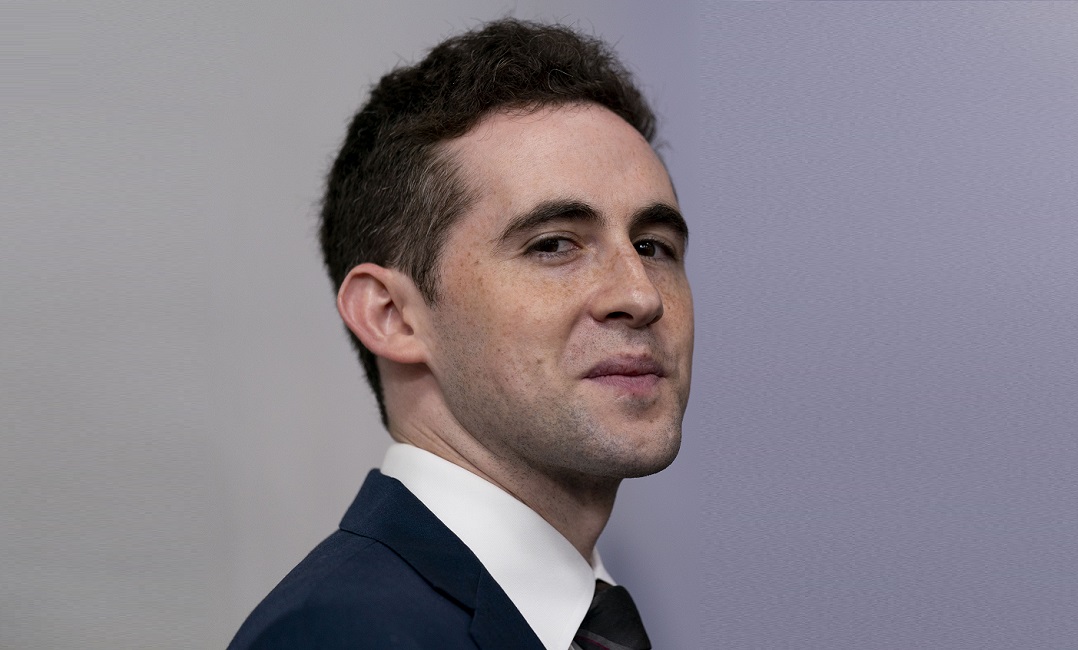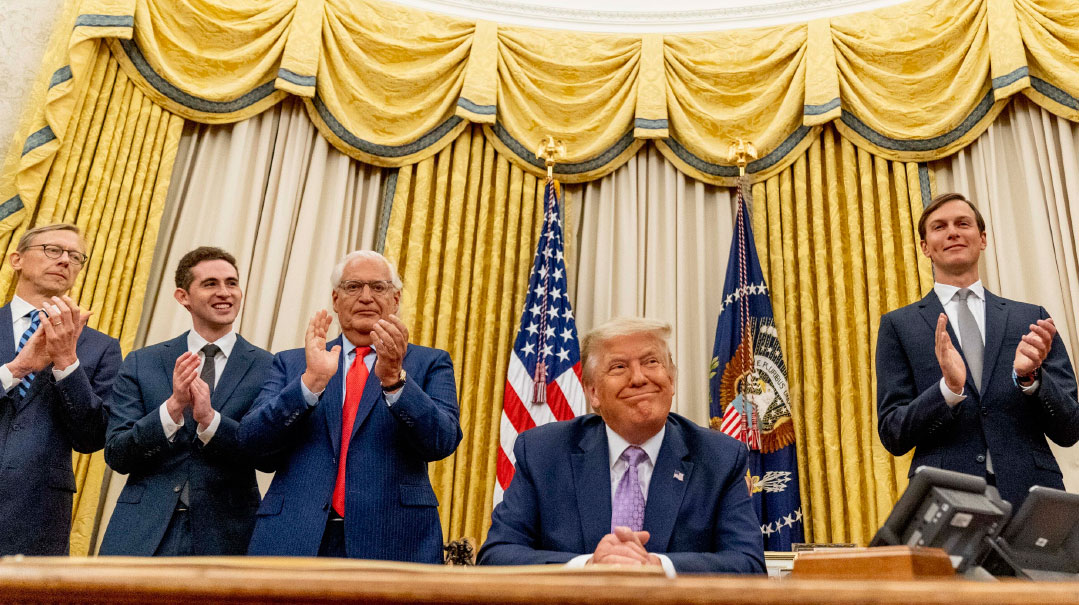4 Takeaways from the Trump-Israel-UAE Deal

Insights from Dr. Yoel Guzansky, whose new book, Fraternal Enemies: Israel and the Gulf Monarchies, couldn’t possibly be timelier

1) Fraternal Enemies Don’t Become Fast Friends Overnight
Now that the United Arab Emirates has agreed to upgrade diplomatic relations with Israel, expectations have reached fever pitch that other Arab countries, especially Bahrain, Oman, Morocco, and perhaps Saudi Arabia, are next in line. Even if they are, international diplomacy is a trek, not a 100-yard dash.
“We’re only at the beginning of a process,” says Dr. Yoel Guzansky, former coordinator of the Iran and Gulf States bureau at Israel’s National Security Council under three different prime ministers, including Binyamin Netanyahu. “It might take a few years to complete, if at all. There will be many bumps along the road.”
Guzansky suggests paying attention to the different tunes each party is singing. “Israelis are speaking about a diplomatic achievement and a historic peace agreement. The UAE used the term ‘bilateral relations.’ I didn’t see the word peace there,” said Guzansky. “The narrative the UAE is now forging is that this was a necessary act to stop the annexation. I’m not sure the Palestinians will buy it, but the UAE is saying we helped keep the two-state solution alive.”
2) This Isn’t Exactly Peace for Peace
The fact that Israel readily agreed to “suspend” the application of sovereignty over Jewish towns in Judea and Samaria and in the Jordan River Valley as a quid pro quo for the UAE deal contradicts the Likud’s spin that this is peace for peace. First, as Guzansky pointed out, the UAE isn’t buying into the term.
Second, President Trump called it “a very smart concession by Israel” and Guzansky contends Trump pushed for this. “I think Trump pressured Bibi to give up annexation because he wants to show an achievement in the Middle East.”
In the broader Arab world, the UAE is a relatively small fish. Guzansky called them a “ship” compared to Saudi Arabia, which he termed an “aircraft carrier.” If Israel had to acquiesce on sovereignty in return for a diplomatic upgrade, what price will they be asked to pay for a first-class ticket to Saudi Arabia?
3) The Deal’s Being Spun in a Misleading Way
I’m not discounting the fact that the Israel UAE deal is a major diplomatic achievement. Prime Minister Netanyahu has insisted for years that Israel can come to terms with Arab nations without advancing a Palestinian state in Israel’s heartland. The Trump administration bought into Bibi’s paradigm and cautioned potential Arab allies that the road to Washington runs through Jerusalem.
But it’s an exaggeration to say, as many commentators have, that this is the “third peace treaty” to be signed between Israel and an Arab country. Aside from the fact that nothing is signed yet, it is certainly not a peace treaty, normally defined as ending a state of war between two countries. Israel’s pacts with Egypt and Jordan were bona fide peace treaties between armed combatants who shared common borders. The UAE and Israel never warred with each other and are situated 1,200 miles apart as the crow flies.
Using hyperbole and disingenuous comparisons only detracts from the potential major positives of the deal. The deal should enhance commercial relations, which have been ongoing between Israel and the UAE for 20 years, mainly in diamonds and agriculture. The UAE will also find Israel an intriguing investment opportunity, mainly in defense industries and technology, building upon the security and intelligence cooperation that’s been underway for the past five years, according to Guzansky.
“The UAE needs Israel and the US on board to tackle what they think is their vital interest and their common enemies, Iran and Turkey,” Guzansky said. “Behind the scenes, Trump might have made promises that he will back the UAE militarily, especially against Iran.”
4) Netanyahu Exposes His Achilles Heel
For Israel’s beleaguered prime minister, the announcement won him some accolades for statesmanship even from his fiercest critics on the left. Israelis’ dreams of driving to Europe through Lebanon and Syria have been dashed for years, but that has now been replaced by visions of Dubai as their next vacation paradise. Oh, and the left is also exulting that Bibi threw in the towel on sovereignty. Among other considerations, Netanyahu is gambling that better relations with the Arab world will win him more votes than he loses by abandoning sovereignty.
“Netanyahu wants his name in the history books beside Begin and Rabin,” Guzansky says.
However, Bibi’s right-wing flank has become his Achilles heel, with Naftali Bennett nipping away. While praising the deal, Bennett insisted that Netanyahu erred in sacrificing sovereignty to get it, taunting Netanyahu for lacking courage and betraying the settler community.
It was Netanyahu who made a calculated decision to exclude the pesky Bennett from his so-called national unity government. Will that decision come back to haunt him? Recent polls show that more Israelis view Bennett as the new leader of the Israeli right, and as a serious candidate for prime minister.
Unless Netanyahu shows quick results from the UAE deal, and manages to get sovereignty back on the agenda — against the odds at this point — staunch right-wing voters will defect at the next election, whenever that happens to be, and Netanyahu and the Likud will pay the price.
(Originally featured in Mishpacha, Issue 824)
Oops! We could not locate your form.











